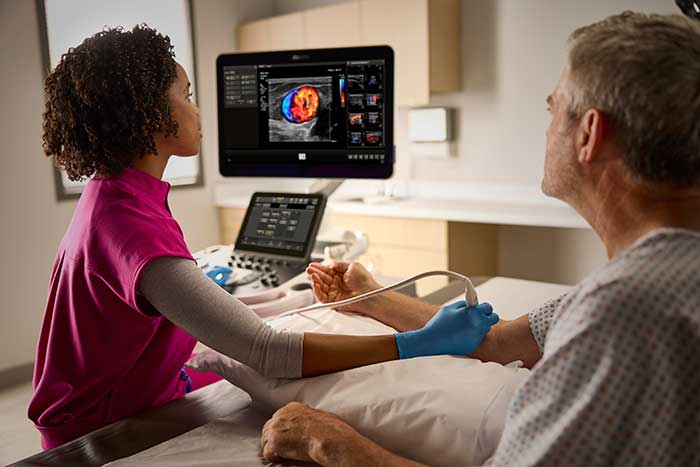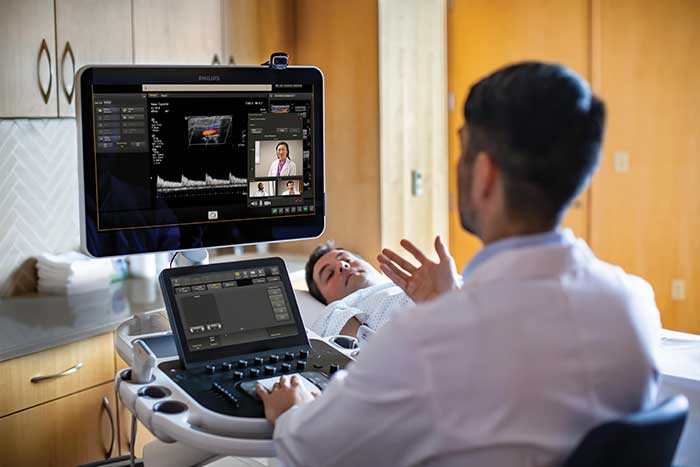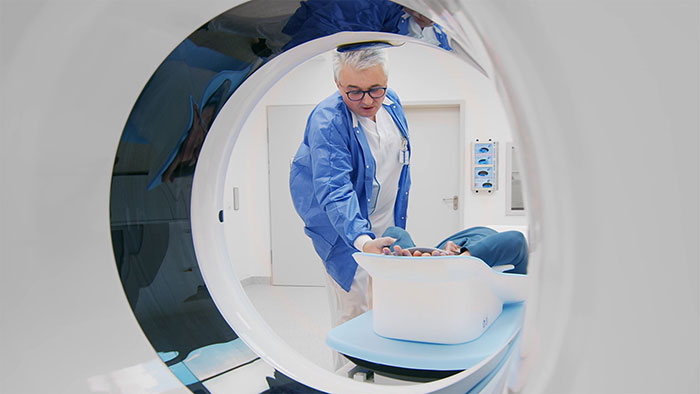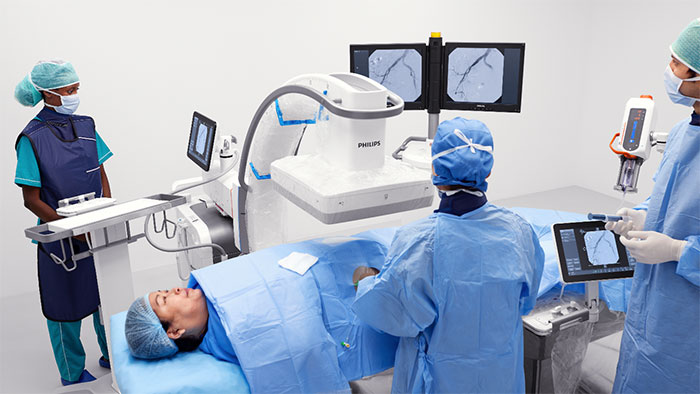Nov 27, 2023
Philips improves workflow and efficiency with next generation ultrasound systems EPIQ Elite and Affiniti at #RSNA23
Amsterdam, the Netherlands and Chicago, USA – Royal Philips (NYSE: PHG, AEX: PHIA), a global leader in health technology, today placed workflow and efficiency at the heart of the next generation of its flagship ultrasound systems EPIQ Elite and Affiniti at #RSNA23. Globally, ultrasound users are challenged with increased patient volume and staffing shortages – exacerbated by more complex cases. The systems feature new automated tools and a common user interface coupled with transducer compatibility across Philips ultrasound systems, including the recently introduced Compact Ultrasound 5000 Series. These latest advances are demonstrating a positive impact on patient and staff satisfaction with customers worldwide by helping to improve workflow and provide greater scanning efficiency.
“At the University of Washington Medical Center, we have multiple locations where we do a wide range of ultrasounds, from general imaging and obstetrics to abdominal, where our sonographers perform as many as 150-170 ultrasound exams in a typical a day,” said Dr. Manjiri Dighe, MD, Medical Director of Ultrasound and Adjunct Professor of Obstetrics and Gynecology at the University of Washington Department of Radiology, Seattle, USA. “Using the latest advances from Philips Ultrasound like the next generation Flow Viewer and MVI Super Resolution CEUS, it’s easier for me to have increased confidence in my diagnosis and ultimately help my patients get better and faster treatment options. To help us better manage a very heavy throughput of patients, the next generation Auto Scan Assistant also helps the sonographer optimize the image, while reducing the number of keystrokes by more than 50% which has greatly improved our staff satisfaction and the quality of our exams.”
By providing a consistent platform across our systems, and continually improving workflow, we’re able to give clinicians more time to focus on what they do best: caring for their patients.
Jeff Cohen
General Manager of Ultrasound at Philips
“Our next generation ultrasound systems EPIQ and Affiniti address the challenges healthcare systems face every day in dealing with more patients with more complex conditions while enhancing operational efficiency and reducing costs,” said Jeff Cohen, General Manager of Ultrasound at Philips. “By providing a consistent platform across our systems, and continually improving workflow, we’re able to give clinicians more time to focus on what they do best: caring for their patients.”
Next generation of clinical performance, advanced insights and simplified workflows
New features and major enhancements incorporated in Philips’ latest ultrasound systems driving advanced visualization and efficiency include: Demonstrations of Philips’ latest EPIQ Elite and Affiniti ultrasound systems, along with live scanning will be available in the Philips Booth #6730 at #RSNA23. Visit Philips at RSNA for more information. [1] Compared to Philips legacy MVI.
[2] Compared to the predecessor L15-7iO.
[3] When comparing VM10 performance to VM 7 performance.
About Royal Philips
Royal Philips (NYSE: PHG, AEX: PHIA) is a leading health technology company focused on improving people's health and well-being through meaningful innovation. Philips’ patient- and people-centric innovation leverages advanced technology and deep clinical and consumer insights to deliver personal health solutions for consumers and professional health solutions for healthcare providers and their patients in the hospital and the home. Headquartered in the Netherlands, the company is a leader in diagnostic imaging, ultrasound, image-guided therapy, monitoring and enterprise informatics, as well as in personal health. Philips generated 2022 sales of EUR 17.8 billion and employs approximately 70,700 employees with sales and services in more than 100 countries. News about Philips can be found at www.philips.com/newscenter.
Topics
Contacts

Kathy O'Reilly
Philips Global Press Office Tel.: +1 978-221-8919
You are about to visit a Philips global content page
ContinueMedia assets
Press releases
Get our press releases by e-mail
You are about to visit a Philips global content page
Continue










